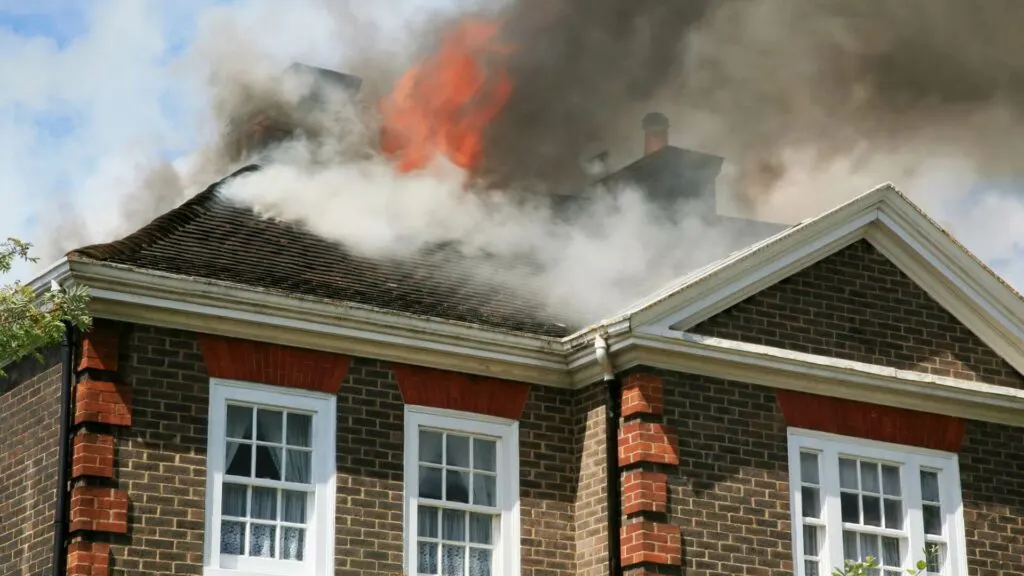House fires are one of the most serious risks homeowners can encounter, so understanding potential fire hazards is an integral part of fire prevention. We will identify and discuss various fire risks you could encounter around your home in this blog post.

The Kitchen: A Hotspot for Fire Hazards
Kitchens, while often the center of activity in most households, also present numerous fire risks. Unattended cooking is one of the biggest culprits when it comes to kitchen fires as oil can easily overheat and ignite. But other risks may include leaving flammable items near the stovetop, electrical appliances malfunctioning improperly, or unextinguished candle flames unattended. Therefore it is key that when cooking, one remains vigilant while being mindful when using heat sources, regularly maintaining kitchen appliances, and always having access to an extinguisher.
Electrical Fire Hazards
Malfunctioning or outdated electrical systems present an invisible yet highly hazardous source of fire hazards in your home. Overloaded power outlets, worn-out wiring and malfunctioning appliances can all spark electrical fires; while old houses may contain outdated wiring that cannot handle modern loads effectively. Overused circuits could result in overheating, which could eventually spark fire outbreaks. Therefore it is wise to unplug appliances when not in use; avoid using extension cords permanently as solutions, regularly inspect wiring for damage and consider professional electrical safety inspection for older properties. Remembering electricity can become an incredible force but must be managed carefully or it can quickly turn into a fire hazard!
Flammable Liquids and Materials
Household products like aerosol cans, cleaning supplies and cosmetics that contain flammable liquids pose another significant fire hazard when exposed to heat sources. Paper, textiles and wood can all quickly ignite into firestorms if stored incorrectly. To protect these items from accidental ignition, it is vitally important that proper storage methods be implemented to avoid unintended ignition. Keep flammable liquids and materials in cool, dry places that are free from heat sources or direct sunlight, with plenty of ventilation. Furthermore, it is vitally important that any old or unused flammable items be disposed of safely according to local regulations – this way the risk of home fires is greatly diminished.
Outdoor Fire Hazards
Outdoor environments present fire risks that should not be neglected. Barbecue grills, fire pits and outdoor heaters if improperly managed can pose significant threats. Overgrown vegetation during dry periods poses another serious hazard which can easily catch fire and spread rapidly. Poor disposal of cigarettes and matches can also spark uncontrolled fires. So always pay attention when using open flames, keep outdoor cooking equipment clean and maintained, clear away dried leaves or grass from your yard, and ensure there are no other combustible debris present in your yard. Furthermore, keep a working water hose or fire extinguisher nearby when participating in activities that involve fire – these measures will allow you to enjoy being outdoors while decreasing risk.
Importance of Smoke Detectors
Smoke detectors are an essential fire safety tool in both indoor and outdoor settings, providing residents with early warning of fire threats. By installing detectors in every room – particularly sleeping areas and near kitchen and heating systems – more early warning of smoke is likely, giving more time for evacuation and calling for help when necessary. Regular testing and maintenance of these devices must also occur to ensure their continued functionality. Functioning smoke alarms could save lives, limit property damage, and provide everyone with a fighting chance against uncontrolled fires.
Hiring a Licensed Electrician
When it comes to electrical work in your home or outdoor spaces, hiring a licensed electrician is key for ensuring safety and compliance with regulations and codes. Licensed electricians have gone through rigorous training and examination processes, which has demonstrated their competence in handling electrical systems. They possess expertise regarding installations, repairs and safety standards. Additionally, licensed electricians are insured against potential damages or incidents during their work; thus protecting both you and your property against electrical fire hazards. It is always wise to first check an electrician’s licensing and credentials before giving them control over your electrical needs.
Avoiding Common Mistakes During a Fire
Knowing what not to do in the event of a fire can be as crucial as knowing what should be done. Never ignore alarms or take too much time collecting items before leaving; every second counts during a fire! Second, avoid elevators as they could malfunction and trap occupants inside, opting for stairs instead to stay low to the ground to reduce smoke inhalation. Finally, do not attempt to extinguish large fires yourself as this puts yourself and other at risk and delays evacuation. Finally, once you’re out of a burning building do not reenter. Report any people or animals trapped inside to the fire department immediately and remember safety should always come first; fires can spread quickly so it is vitally important that we avoid making these common errors.
Conclusion
While this blog does not offer a complete picture, it provides an in-depth examination of some major fire risks within and around your home. By remaining vigilant and taking the necessary precautions, you can significantly lower your risk of housefire.

Jessi is the creative mind behind The Coffee Mom, a popular blog that combines parenting advice, travel tips, and a love for all things Disney. As a trusted Disney influencer and passionate storyteller, Jessi’s authentic insights and relatable content resonate with readers worldwide.
